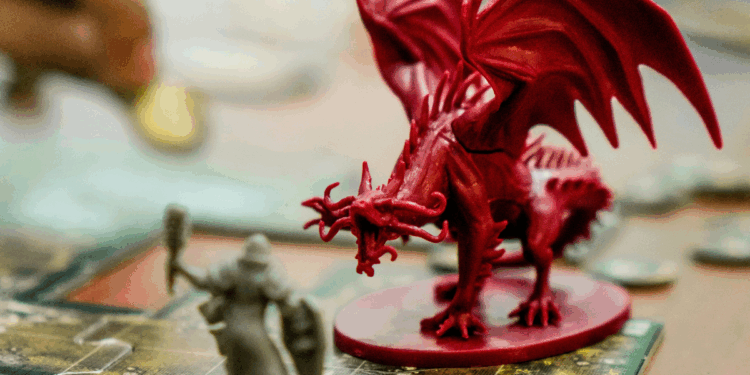Recently, Wizards of the Coast, the parent company of Dungeons & Dragons, released a promotional image that unintentionally made the best case for cultural gatekeeping against the radical left.
Wizards posted a hideous pastel fantasy town filled with ugly LGBT characters sporting the tagline “In this realm, your story is yours to tell.” Instead of evoking the spirit of adventure and daring, it looked like a Lisa Frank fantasy engineered for the rainbow cult.
Unsurprisingly, the post drew a host of brutal critiques.
It simply wasn’t Dungeons & Dragons. But then again, D&D hasn’t been D&D for years. The game has become a hollow shell, a husk infested with parasites that see it as a host system for ideological dissemination.
Take “Journeys Through the Radiant Citadel,” a 2022 adventure anthology marketed as written entirely by minorities. Media outlets swooned over the sheer diversity while longtime players wondered where the dragons and the dungeons had gone.
Even then, longtime fans sensed the drift. “Wages of Vice,” one of the anthology’s stories, featured fantasy showgirls, imagery that violently clashed with the game’s traditional tone. Critics were told then, as now, that D&D is “for everyone” and that any discomfort proved they weren’t real fans. Which is rich coming from activists who invaded the hobby under a banner of inclusivity by exploiting goodwill and tolerance, only to enforce an iron ideological conformity through shame and cancellation.
The pattern extends far beyond D&D. Wizards’ other flagship product, Magic: The Gathering, has followed the same script of endless, virtue-signaling diversity instead of competent world-building. Recent expansions like “Edge of Eternities” and “Duskmourn: House of Horror” featured nonbinary or genderless characters.
As with “Journeys Through the Radiant Citadel” and the recent D&D promotional image, none of it fit the setting. It just smacks of virtue-signaling. “It’s not political,” the parasites insist, right before injecting another dose of woke dogma into worlds that never asked for it. And once that infiltration reaches critical mass, the culture itself mutates beyond recognition.
So, what can be done? Once ideological activists take root, eviction is nearly impossible. Even as wokeness fades, its architects have already purged dissent and reshaped the rules such that they now constitute a powerful majority.
The only real defense is prevention — what critics decry as gatekeeping. In reality, it is the refusal to hand over a culture to those who despise its foundations. To the left, exclusion is sin, while to the average fan, it feels impolite. Isn’t more participation always good? More players, more fun? Not necessarily.
There’s an online concept called the “Eternal September” that refers to how a niche hobby begins to unravel as more people dilute it from its original state. When a niche culture suddenly opens its gates, the steady influx of newcomers erases the customs that defined it and made it attractive in the first place. The result is a bland husk.
Eternal Septembers happen wherever there aren’t guardrails in place to ensure only those truly committed to the culture are permitted to join. “Stranger Things” brought D&D to the masses, and the game reacted by streamlining systems, courting beginners, and sanding down everything that once gave it texture.
For D&D itself, salvation may be impossible; the rot runs too deep. But its progeny can still be protected. Veteran players, disillusioned with the death of the official brand, are building alternatives untouched by ideology. Such games, drafted by refugees from leftist hordes, should not open their gates to just anyone.
Gatekeeping is cultural stewardship. Every culture worth saving has borders, and those borders preserve shared language, standards, and identity against the flattening gravity of the opportunist hordes.
Without that boundary, any culture, hobby, or art form becomes a target for assimilation into the greater woke project rather than a world to be inhabited. Dungeons & Dragons is a warning that the moment a culture abandons its right to say no, it ceases to be a culture at all.
Gatekeeping, then, is the immune system of meaning. A hobby without defenses will be subsumed by people who neither love nor understand it. If you want what you love to survive, mind the gate.
















